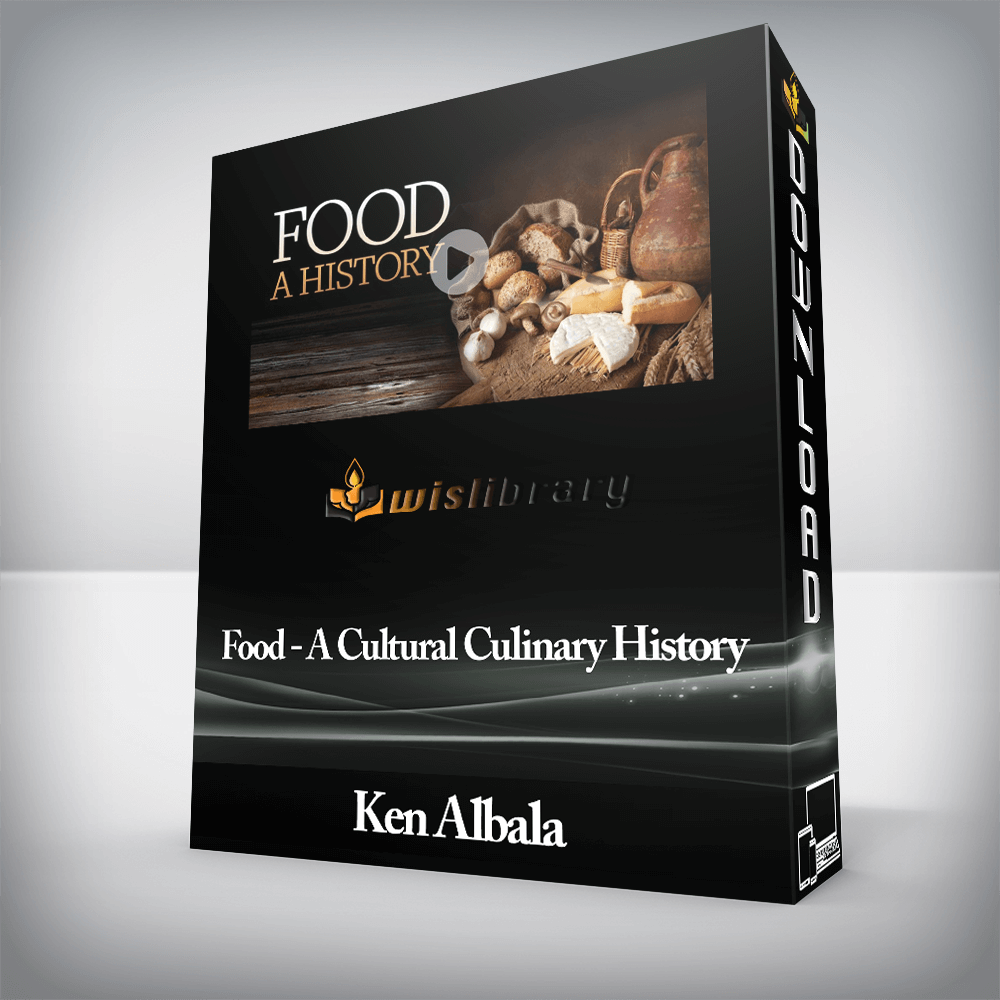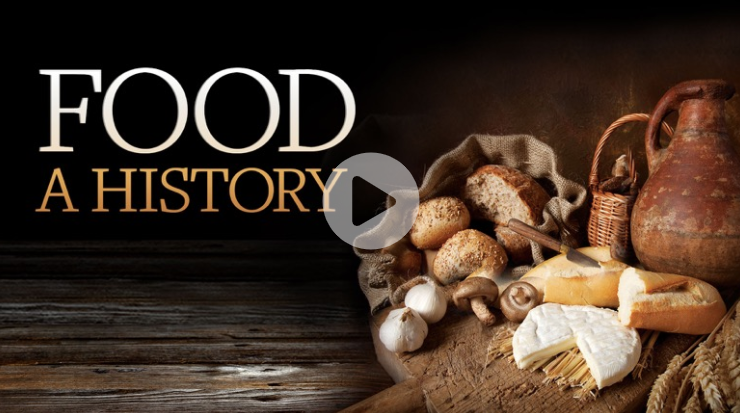

Learn in depth about food production and technology in each era; the social, economic, and political factors surrounding…
File Size: 15.5 GB

Eating is an indispensable human activity. As a result, whether we realize it or not, the drive to obtain food has been a major catalyst across all of history, from prehistoric times to the present. Epicure Jean-Anthelme Brillat-Savarin said it best: “Gastronomy governs the whole life of man.”
In fact, civilization itself began in the quest for food. Humanity’s transition to agriculture was not only the greatest social revolution in history, but it directly produced the structures and institutions we call “civilization.”
In every era, the unfolding of history has been intimately tied to the need for food, the production of food, and the culture of food. In all major religions, food choice has been an integral part of religious identity. The quest for spices and exotic foodstuffs led to the European discovery of the New World, as well as to the connecting of the entire globe through trade. In 1840s Ireland a single food—the potato—changed the course of history. Modern warfare, from Napoleon’s conquests to World War II, was made possible by advances in food technology.
In our own times, more people worldwide now recognize the McDonald’s “golden arches” than the Christian cross. Beyond feeding our bodies, food choices and ideologies express social distinctions, as well as our values, concerns, and aspirations. For all of these reasons, food offers a deeply insightful lens on human history, shedding new light on the evolution of social and political systems, on cultural interactions, economic empires, human migrations, and more. Through food culture, we see how primary biological needs have shaped all human lives through the ages. The history of food is the history of human life at its most elemental, its most intimate, its most essential. It’s also a story of ingenuity, creativity, and remarkable human behavior to rival any other aspect of culture.
In Food: A Cultural Culinary History, award-winning Professor Ken Albala of the University of the Pacific puts this extraordinary subject on the table, taking you on an enthralling journey into the human relationship to food. With this innovative course, you’ll travel the world discovering fascinating food lore and culture of all regions and eras—as an eye-opening lesson in history as well as a unique window on what we eat today.
Incorporating extensive study of historical recipes, food preparation techniques from around the world, and activities you can try at home, these 36 colorful lectures take you through the entire spectrum of food history, from the cuisine of ancient Egypt to the great flowering of European cookery in the Middle Ages, and from the celebrity chefs of 18th-century France to our own Zagat- and Michelin-rated restaurant culture. Along the way, you learn in depth about food production and technology in each era; the social, economic, and political factors surrounding food culture; and thinking on diet and eating through the centuries. The result is a compelling inquiry that will change the way you look at both history and food itself.
As context for exploring humanity’s remarkable food cultures, you observe the integral role of food in the unfolding of civilization. From prehistory to our own era, your study includes these seminal subjects:
At the heart of the course, you delve deeply into classic food traditions around the world. Among civilizations of Europe, Asia, Africa, and the Americas, your inquiry highlights these traditions:
Expanding on the lectures and in-studio demonstrations of food preparation techniques, the course guidebook presents a series of 39 hands-on activities—where you can learn how to make everything from Egyptian beer to Elizabethan “Chickin Pye”—that give you direct experience of how people cooked, ate, and thought about food in past eras. You also practice medieval eating rituals, track the rich evocation of food in art, and immerse yourself in the poetic ambiance of classic Japanese dining.
Across the span of the centuries you sample important food writing from many cultures, from the world’s first surviving recipes written in cuneiform to the lavish dishes of Apicius of Rome, and from the classic medieval cookbooks of Taillevent and Chiquart to the 19th-century Guide Culinaire by Escoffier.
And, throughout the series, the lectures pulsate with surprising and intriguing details of the human adventure with food:
Food: A Cultural Culinary History offers you an insightful and startlingly different view of our civilization that you won’t find anywhere else, revealing the development of societies and cultures through the single factor that has driven human life more than any other. In the process, you discover the stunning richness of world cultures as seen in their distinctive food traditions, and greatly broaden your own enjoyment of fine food.
There are no reviews yet.
You must be <a href="https://wislibrary.org/my-account/">logged in</a> to post a review.